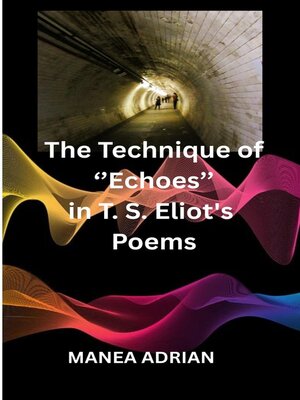
Sign up to save your library
With an OverDrive account, you can save your favorite libraries for at-a-glance information about availability. Find out more about OverDrive accounts.
Find this title in Libby, the library reading app by OverDrive.



Search for a digital library with this title
Title found at these libraries:
| Library Name | Distance |
|---|---|
| Loading... |
Eliot uses a technique of ''echoes'', of quotations and allusions, in order to evoke meaningful fragments of the past culture. Rhythms, as repeated patterns of sound, may be considered forms of echoes. And so are quotations.
In his poems, T. S. Eliot works simultaneously on two levels:
=one level of borrowings, quotations and echoes of the past literary traditions (a level of ''artistic plagiarism'' and of meaningful fragments);
=and, at the same time, the poetic discourse presents the poetic ''ego'' with his ''masks'' (personae) in the present American civilisation.
The poem is the result of mixing the two different levels, the level of objective reality (Reality I) and the Reality of 2nd degree – The reality of the language.
These are intertextuality, or a dependence upon outside sources for meaning.
Quotations from the past literature integrated into the present literature form a new text. Two separate voices speaking at the same time, the same message at the segmental and at the suprasegmental levels of communication.







